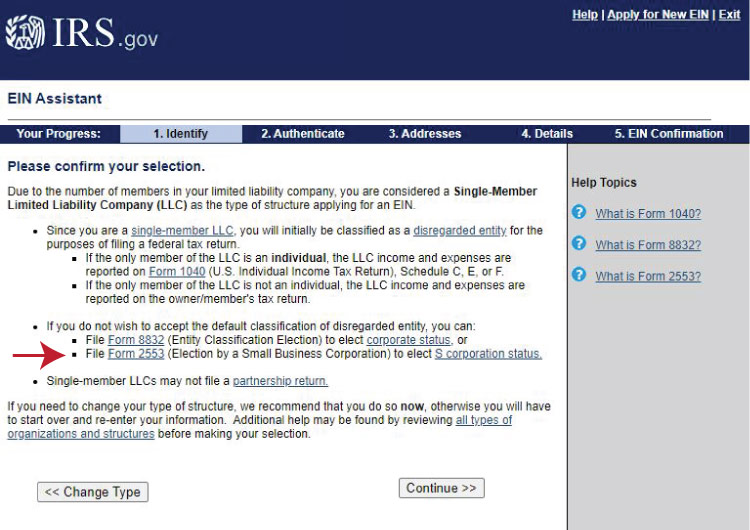How to Start an S Corp in South Carolina
Starting an S corporation (S corp) in South Carolina can potentially provide tax savings, depending on your business’s circumstances.
This guide will outline the steps required to form an S corp in South Carolina and help you figure out if it’s the right path for your business.
Keep reading to get started and explore how a South Carolina S corp might benefit you at tax time.
Pro Tip: Get a free consultation with a tax professional to determine if an S corp is right for you.

Factors to Consider Before Starting an S Corp in South Carolina
Before forming an S corp, you have to consider the following factors:
- Is an S corporation the best strategy for your business?
- S corporation restrictions
- Why a limited liability company (LLC) is the best structure for S corp tax status
- Are S corp tax advantages right for you?
Is an S Corporation the Best Strategy for Your Business?
For help with choosing the right structure for your business, visit our Choosing a Business Structure guide.
S Corporation Restrictions
S corps have several restrictions, such as being limited to one class of stock and 100 shareholders. Read our What Is an S Corporation guide for full details.
Are S Corp Tax Advantages Right for You?
An S corporation is a tax designation that can be elected by an LLC or corporation. With an S corp, business owners are considered employees of the company and must receive a reasonable salary. Since all S corps technically have employees, the s corp must run payroll.
In order to benefit from a South Carolina S corp tax designation, your business needs to make enough money to offset payroll expenses. Furthermore, S corps are beneficial for business owners who take large distributions in addition to their salary.
To learn more about the tax advantages of an S corp, read our LLC vs. S corp guide and take a look at our S Corp tax calculator.
Pro Tip: Get a free consultation with a tax professional to determine if an S corp is right for you.
How to Form a South Carolina S Corp
There are two main ways to start an S corp:
- By forming an LLC and electing S corp tax status from the IRS when you request your employee identification number (EIN)
- By forming a corporation and electing S corp status from the IRS
We recommend forming an LLC because it’s simpler and more cost-effective.
Not in South Carolina? Check out our other How to Start an S Corp guides to learn more.
Recommended: If you have an existing LLC, visit our How to Convert an LLC to S Corp guide.
Steps for Forming an LLC and Electing S Corp Status in South Carolina
Starting a South Carolina LLC and electing S corp tax status is easy. You can use our guides to start an LLC with the S corp status yourself, or you can hire a service provider like Northwest to guide you through this process.
There are five basic steps to start an LLC and elect S corp status:
Step 1: Name Your LLC
Step 2: Choose a Registered Agent
Step 3: File the Articles of Organization
Step 4: Create an Operating Agreement
Step 5: Get an EIN and File Form 2553 to Elect S Corp Tax Status
Step 1: Name Your LLC
Choosing a company name is the first and most important step in starting your LLC in South Carolina.
Be sure to choose a name that complies with South Carolina naming requirements and is easily searchable by potential clients.
1. Follow the naming guidelines for a South Carolina LLC:
- Your name must include the phrase “limited liability company” or “limited company” or one of their abbreviations (LLC, L.L.C., LC, L.C.). “Limited” may be abbreviated as “Ltd.,” and “company” may be abbreviated as “Co.”
- Your name cannot include words that could confuse your LLC with a government agency (FBI, Treasury, State Department, etc.).
- Certain restricted words (e.g. Bank, Attorney, University) may require additional paperwork and a licensed individual to be part of your LLC.
- Your name must be distinguishable from any existing business in the state. This includes South Carolina reserved names.
You can also read the South Carolina state statute about LLC naming guidelines for more information.
2. Is the name available in South Carolina? You can use the business name search on the South Carolina Secretary of State website to see if your desired LLC name is available.
3. Is the URL available? We recommend checking to see if your business name is available as a web domain. Even if you don’t plan to create a business website today, you may want to buy the URL in order to prevent others from acquiring it.
Step 2: Choose Your South Carolina Registered Agent
You must elect a registered agent for your South Carolina LLC.
An LLC registered agent will accept legal documents and tax notices on your LLC’s behalf. You will list your registered agent when you file your LLC’s Articles of Organization.
Many business owners choose to hire a registered agent service. Many of these services will form your LLC for a small fee and include the first year of registered agent services for free.
Step 3: File the South Carolina LLC Articles of Organization
The South Carolina Articles of Organization is used to officially register an LLC.
File Your South Carolina Articles of Organization
OPTION 1: File Online With the South Carolina Secretary of State
File Online– OR –
OPTION 2: File by Mail
Download FormState Filing Cost: $110, payable to the Secretary of State (Nonrefundable)
Mailing Address:
South Carolina Secretary of State’s Office
Attn: Corporate Filings
1205 Pendleton St., Suite 525
Columbia, SC 29201
Step 4: Create an LLC Operating Agreement
An LLC operating agreement is a legal document that outlines the ownership and member duties of your LLC.
For more information, read our LLC Operating Agreement guide.
Our operating agreement tool is a free resource for business owners.
Step 5: Get an EIN and Complete Form 2553 on the IRS Website
An EIN is a number that is used by the US Internal Revenue Service (IRS) to identify and tax businesses. It is essentially a Social Security number for a business.
EINs are free when you apply directly with the IRS.
Elect S Corp Tax Status
During the online EIN application, the IRS will provide a link to Form 2553, the Election By a Small Business form.
Visit our Form 2553 Instructions guide for detailed help with completing the form.
This is the form to elect S corp tax status for your LLC:

Ready to start saving on your taxes?
We recommend using a formation service to start your South Carolina S corp for you, so you can focus on the things that matter most — growing your business.
Keep Your South Carolina S Corp Compliant
After successfully setting up your business as an S corp, you must ensure it remains compliant. Keeping your business in good standing requires paying all taxes on time, following state and local laws and guidelines, and filing an annual report.
File the BOI Report
South Carolina S corporations are required by federal law to file a Beneficial Ownership Information (BOI) report with the Financial Crimes Enforcement Network (FinCEN). This report helps keep track of who owns or controls your business, ensuring compliance and transparency.
You can file the BOI report through the FinCEN website.
Open a Business Bank Account
Separating business finances from your personal finances is crucial to protect your LLC’s limited liability status. A dedicated business bank account also will help you manage your financial transactions clearly and ensure compliance with legal requirements.
Explore the best banking options for your business in our guide on the Best Banks for Small Business.
South Carolina S Corp Annual Report
If you elect to be taxed as an S corp, you must file an annual report with the South Carolina Department of Revenue. The annual report is due on or before April 15 of each year after you file your business’s Articles of Incorporation.
South Carolina S Corp Taxes
S corporations benefit from pass-through taxation, meaning the business’s profits pass-through to S corp owners’ individual tax returns. S corp owners make money from their reasonable salary and distributions, and South Carolina S corp owners can expect to pay the following taxes:
Federal Self-Employment Taxes
Self-employment taxes cover social security and medicare. The self-employment tax rate is 15.3%, and money you take as salary will be subjected to the self-employment tax. However, distributions are not subjected to this tax.
Federal Income Taxes
Your federal income taxes will depend on your tax bracket, and the cutoffs for individual tax brackets as well as the percent owed will change each year. Both your salary and distributions are subjected to federal income tax.
South Carolina Income Taxes
South Carolina’s income tax rate ranges from 0% to 6.5%, depending on your income in a given tax year. The state adjusts its income tax brackets annually to account for inflation.
Given this graduated tax rate, your total earnings will dictate the percentage you must pay. If you have a lower income one year, for example, you’ll pay a lower income tax rate. That means you’ll have a reduced tax burden if your business earns less than you expect.
South Carolina Sales and Use Tax
The statewide sales and use tax rate in South Carolina is 6%. Counties can impose an additional 1% local sales tax if voters approve the tax. Visit the South Carolina Department of Revenue website to learn more.
Additional State Taxes
South Carolina also has state-specific taxes that may apply to your business. Some examples of these additional taxes include:
- Liquor Tax
- Cigarette Tax Stamps
- Admissions Tax
- Motor Fuel Tax
- Accommodations Tax
- Forest Renewal Tax
Visit the South Carolina Department of Revenue website for more information.
South Carolina Local Taxes
Whether you open your business in Myrtle Beach, Charleston, or any other smaller city within South Carolina, you may have to pay local taxes. Check with your local government to ensure your business complies with local and state laws.
Start a South Carolina S Corp FAQ
An S corporation (S corp) is a tax designation that an LLC or a corporation can elect.
No. The default taxes for an LLC and taxes for an S corp are not the same.
With an S corp, owners pay personal income tax and self-employment tax on a predetermined salary. They may then withdraw any remaining profits from the business as a “distribution,” which isn’t subject to self-employment tax.
With an LLC, all company profits pass through to the owners’ personal tax returns, and then the owners must pay personal income tax and self-employment tax on the entire amount.
S corp owners are required to earn a “reasonable” salary, which basically means a fair market rate based on the individual’s qualifications as well as their duties and responsibilities at the company. The purpose of this requirement is to prevent S corp owners from paying themselves an artificially low salary in order to pay less self-employment tax.
A distribution is a dividend that a shareholder/owner can take from the business profits that remain after a company pays all of its employee salaries. Shareholders must pay personal income tax on distributions, but distributions aren’t subject to self-employment tax.
LLCs and corporations that operate under a “doing business as” (DBA) name can choose the S corp election.
South Carolina has a booming economy with businesses in the automotive, agribusiness, manufacturing, and life sciences industries, among others. Regardless of your business’s industry, you can save money by electing S corp status in South Carolina.
South Carolina’s graduated income tax rate, prime location, and business incentives/credits make it an attractive state for business owners looking to save money.